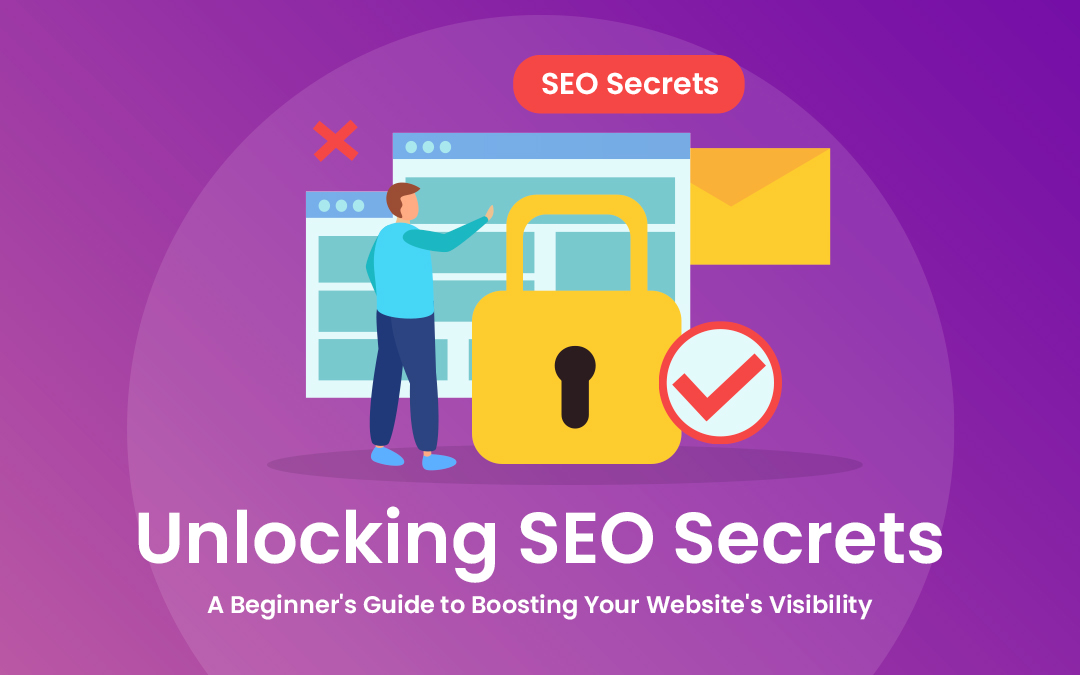
Welcome to the ultimate beginner's guide to SEO (Search Engine Optimization)! In today's digital age, having a killer website isn't enough. You need to ensure it's discoverable by your target audience. That's where SEO comes into play. Whether you're a seasoned website owner or just starting your online journey, understanding the basics of SEO is crucial. Fear not, as we're here to demystify the world of search engines and help you unlock the secrets to boosting your website's visibility through proven and tested concepts employed by top tier SEO firms like Ignite Digital.
What is SEO?
Let's kick things off with the basics. SEO stands for Search Engine Optimization. In simple terms, it's the process of optimizing your website to rank higher in search engine results pages (SERPs). Why does this matter? Well, think about how you use the internet. When you're looking for information, products, or services, you probably turn to a search engine like Google, Bing, or Yahoo. And you're not alone. Millions of people use search engines every day to find what they're looking for. By optimizing your website for search engines, you increase the chances of your site appearing at the top of the results when someone searches for relevant keywords or phrases.

Keyword Research:
One of the fundamental pillars of SEO is keyword research. Keywords are the words and phrases that people type into search engines when looking for information. By identifying the right keywords for your website, you can attract more relevant traffic and improve your chances of ranking higher in search results. But how do you find the right keywords? There are plenty of tools available, such as Google Keyword Planner, SEMrush, and Moz Keyword Explorer, that can help you identify popular keywords related to your niche. Look for keywords with high search volume and low competition to maximize your chances of success.
On-Page Optimization:
Once you've identified your target keywords, it's time to optimize your website's on-page SEO elements. This includes elements such as titles, meta descriptions, headings, and content. Let's break it down:
- Titles: Your page titles are one of the most important on-page SEO factors. Make sure each page on your website has a unique and descriptive title that includes your target keywords.
- Meta Descriptions: Meta descriptions are the brief summaries that appear below the page titles in search engine results. While meta descriptions don't directly impact rankings, they can affect click-through rates. Write compelling meta descriptions that entice users to click on your link.
- Headings: Use headings (H1, H2, H3, etc.) to structure your content and make it easier for both users and search engines to understand. Include your target keywords in your headings where appropriate.
- Content: When it comes to content, quality is key. Create valuable, informative, and engaging content that addresses the needs and interests of your target audience. Incorporate your target keywords naturally throughout your content, but avoid keyword stuffing.

Technical SEO:
In addition to on-page optimization, there's also a technical side to SEO that you need to consider. Technical SEO involves optimizing your website's backend infrastructure to improve its crawlability, indexability, and overall performance. Here are some technical SEO factors to keep in mind:
- Site Speed: Page speed is a critical ranking factor. Ensure your website loads quickly on all devices by optimizing images, minimizing code, and using caching techniques.
- Mobile Friendliness: With more people accessing the internet via mobile devices, it's essential to ensure your website is mobile-friendly. Use responsive design techniques to ensure your site looks and functions well on smartphones and tablets.
- Site Structure: A well-organized site structure not only makes it easier for users to navigate your website but also for search engines to crawl and index your content. Use clear navigation menus, breadcrumbs, and internal linking to create a logical hierarchy.
- HTTPS: Security is a top priority for search engines. Switch to HTTPS to encrypt data transmitted between your website and its visitors, which can also boost your site's rankings.
Off-Page Optimization:
In addition to on-page and technical optimization, off-page optimization plays a crucial role in SEO. Off-page SEO refers to activities that take place outside of your website but can still impact your search engine rankings. The most important off-page SEO factor is link building. Search engines view links from other websites as votes of confidence in your site's authority and relevance. Here are some strategies for effective link building:
- Guest Blogging: Contribute guest posts to other websites in your niche and include links back to your site within the content.
- Outreach: Reach out to influencers, bloggers, and website owners in your industry and ask them to link to your content.
- Social Media: Share your content on social media platforms and encourage others to share it as well. Social signals, such as likes, shares, and comments, can indirectly impact your search engine rankings.
- Directory Listings: Submit your website to online directories and business listings to increase your online visibility and build backlinks.
Measuring Success:
Finally, it's essential to measure the success of your SEO efforts. Monitor your website's performance using tools like Google Analytics and Google Search Console. Track metrics such as organic traffic, keyword rankings, and conversion rates to gauge the effectiveness of your SEO strategy. Keep in mind that SEO is an ongoing process, and it may take time to see results. Be patient and stay consistent with your efforts, and you'll be well on your way to boosting your website's visibility in search engine results.

Conclusion
Congratulations! You've made it to the end of our beginner's guide to SEO. We've covered the fundamentals of SEO, from keyword research to on-page optimization techniques, and everything in between. By implementing the strategies outlined in this guide, you can improve your website's visibility in search engine results and attract more organic traffic. Remember, SEO is not a one-time task but an ongoing process that requires patience, dedication, and continuous effort. So roll up your sleeves, dive in, and start unlocking the secrets to SEO success!
Share this post
Leave a comment
All comments are moderated. Spammy and bot submitted comments are deleted. Please submit the comments that are helpful to others, and we'll approve your comments. A comment that includes outbound link will only be approved if the content is relevant to the topic, and has some value to our readers.

Comments (0)
No comment